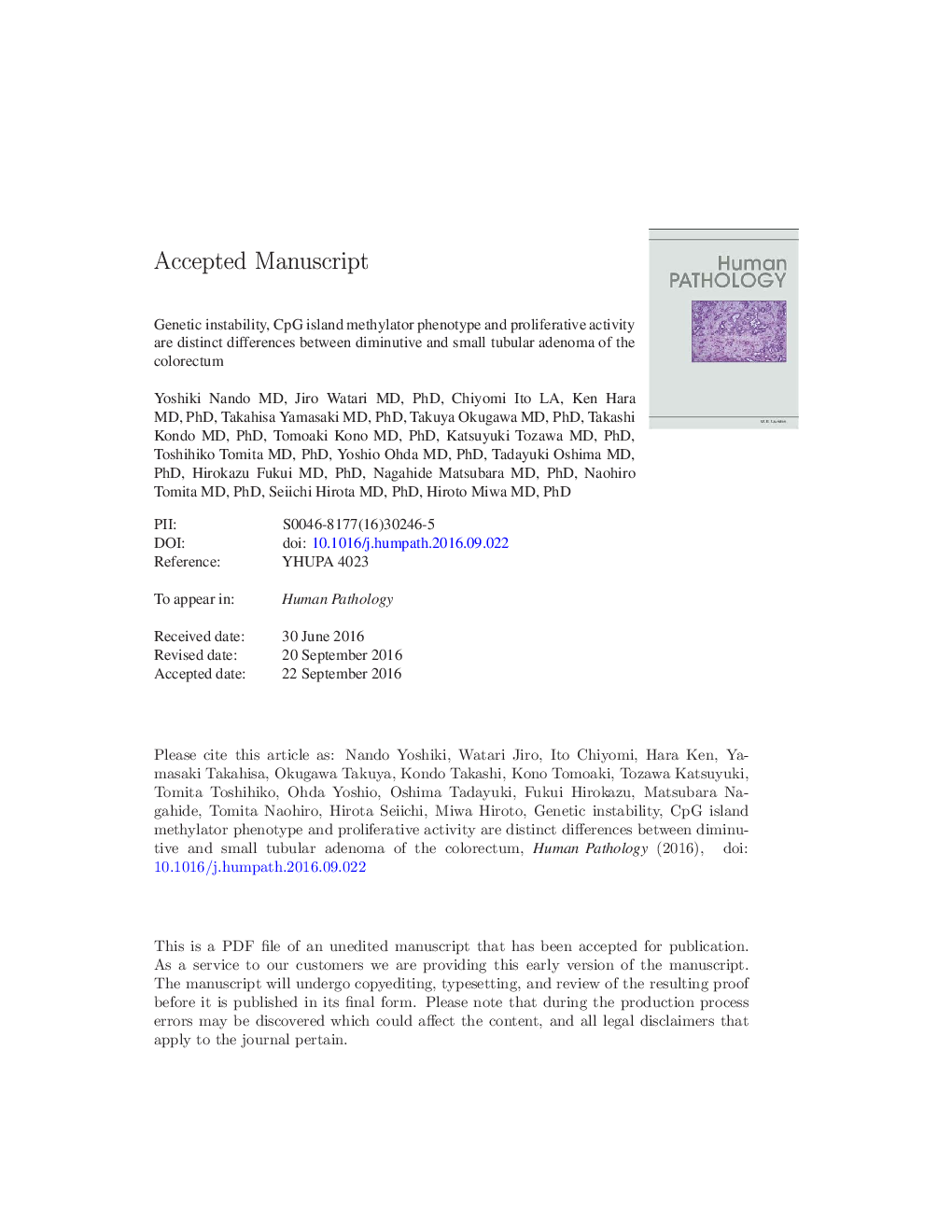| Article ID | Journal | Published Year | Pages | File Type |
|---|---|---|---|---|
| 5716154 | Human Pathology | 2017 | 30 Pages |
Abstract
It is recommended that small (6-10 mm) lesions be treated with endoscopic resection (ER), whereas diminutive (â¤5 mm) lesions are not currently an indication for ER according to the Japanese guidelines. The aim of this study was to evaluate the molecular alterations, and therefore treatment indications, in diminutive versus small tubular adenoma (TA). We prospectively analyzed genetic instability, including microsatellite instability and loss of heterozygosity, methylation status, KRAS/BRAF mutations, and Ki-67 staining in 96 TAs without a villous component. Although no microsatellite instability was identified in either diminutive or small TAs, genetic instability was seen in small TAs (9.1%) but not diminutive TAs (P = .04). In addition, the low-level CpG island methylator phenotype (CIMP-L) was more frequently observed in small TAs (31.8%) than in diminutive TAs (P = .01). Thus, genetic instability and CIMP-L were associated with small TAs, and only CIMP-L was an independent predictive marker for small TAs (odds ratio, 3.29; P = .03). Intriguingly, the Ki-67 proliferative index tended to be higher in small TAs than in diminutive TAs (P = .06) and higher in TAs with CIMP-L than in those without CIMP (P = .08). KRAS mutations were seen in codon 12 in 5.2% of TAs, but no BRAF gene mutations were found. As the molecular events and proliferative activity for the progression may increase from diminutive to small TAs, small TAs should be treated with ER, whereas a “predict, resect, and discard” strategy may be acceptable in most diminutive lesions except flat and depressed-type lesions, in keeping with the current strategy in the West.
Related Topics
Health Sciences
Medicine and Dentistry
Pathology and Medical Technology
Authors
Yoshiki MD, Jiro MD, PhD, Chiyomi LA, Ken MD, PhD, Takahisa MD, PhD, Takuya MD, PhD, Takashi MD, PhD, Tomoaki MD, PhD, Katsuyuki MD, PhD, Toshihiko MD, PhD, Yoshio MD, PhD, Tadayuki MD, PhD, Hirokazu MD, PhD, Nagahide MD, PhD, Naohiro MD, PhD,
